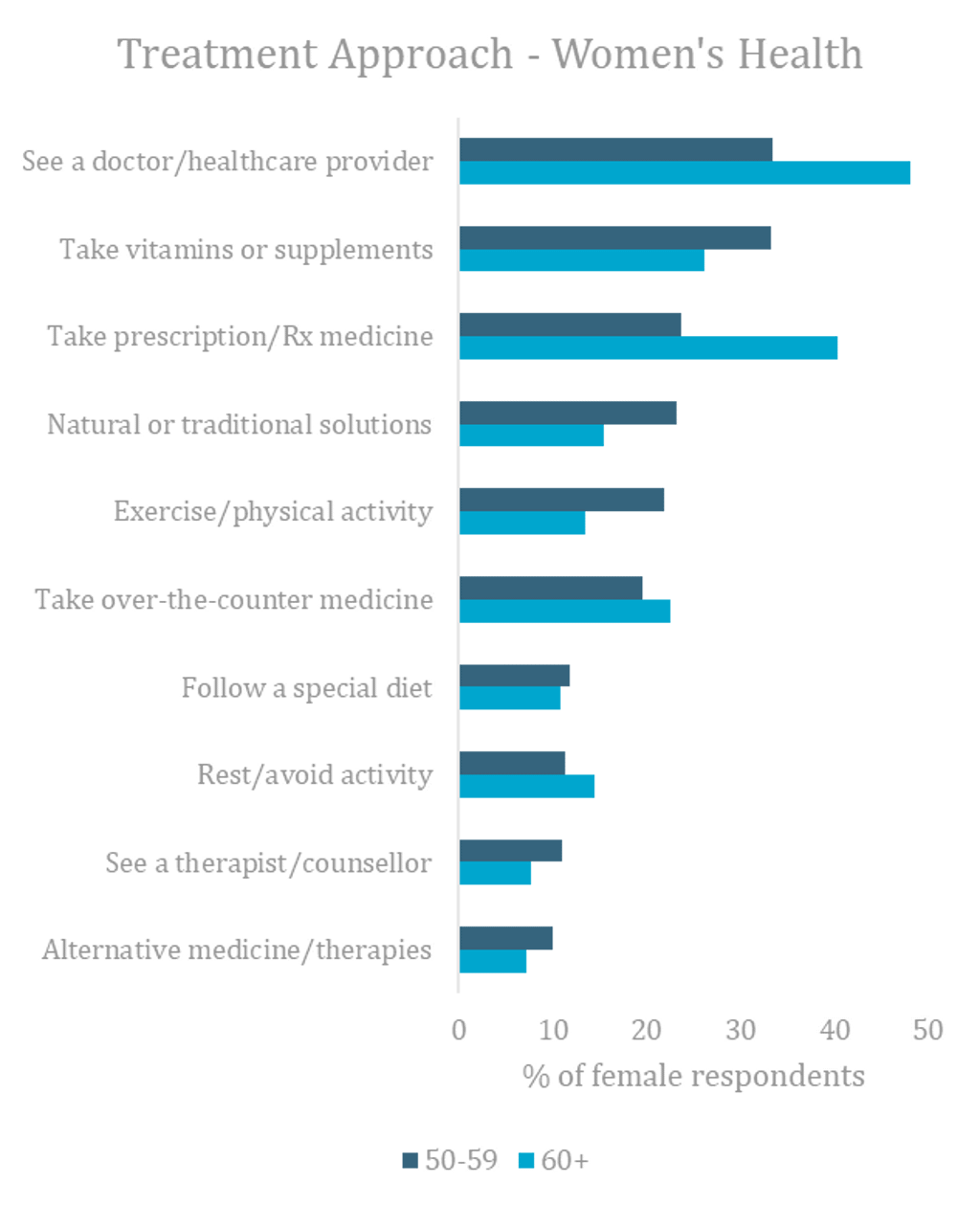According to the National Institute of Ageing (NIA), menopause is defined as a point in time 12 months after a woman’s last menstrual cycle. Whilst this is most common in mid to later life, early menopause can also occur due to health conditions, cancer treatments and hysterectomies.
While hormone replacement therapy (HRT) is the primary medical treatment for menopause, only a quarter of perimenopausal women globally use prescription medicine to treat related health issues during this period. This is likely to be due to associated risks such as breast or ovarian cancer, as well as delayed diagnosis preventing treatment.
In light of this delayed diagnosis, many women opt for a wider lifestyle approach with supplementation, exercise, diet and therapy all being used to treat women’s health during this time, either as a standalone approach or complementary to HRT. Due to the wide-ranging symptoms of menopause, which affect both physical and mental health alongside appearance, a holistic approach which combines these treatments is often favoured.

Supplementation is used by many women as a method to alleviate symptoms such as hot flushes and mood swings as well as acting as a preventative measure against osteoporosis.
Holistic approach merges topical and systematic treatment
Skin care is increasingly treated as an extension of the holistic treatment of menopause. This is both due to changing skin care needs as well as beauty increasingly treated as an extension of health and part of a wider ecosystem. Phytoestrogens, ayurvedic techniques, adaptogens and probiotics offer opportunities for menopausal skin care, with VENeffect utilising plant-derived oestrogen in its products, while Avon announced an adaptogens menopause range called Adapt in August 2020.
Stress further triggers hormonal imbalance, whereby the body produces cortisol over the much-needed oestrogen and progestogen, as does sleep deprivation, which is common in menopause, and high sugar diets. Consumers are therefore managing menopause through nutrition, sleep hygiene and stress reduction, with CBD, sleep aids and essential oils gaining importance.
Menotech demand brings data privacy concerns with it
Technology in women’s health acts as an antidote to many consumers feeling overlooked by traditional medicine through services and devices designed specifically for these issues. Technology aimed at menopausal women, dubbed “menotech”, can be mostly categorised into three main areas: telehealth, symptomatic treatment, and tracking.
Concerns around the end-use of data are rising however, while menstruation and contraceptive apps such as Maya and Natural Cycles have been subject to controversies such as data sharing and unplanned pregnancies. Menotech brands must therefore ensure their data privacy is communicated in addition to the performance of their AI technologies to guarantee consumer confidence.
Education and community offer brand loyalty
As taboos surrounding menopause remain, brands with in-built community offer solace to women experiencing symptoms in an anonymous manner. These communities must strive to become more inclusive, adopting pro-ageing narratives whilst including those going through early menopause as well as trans and non-binary people.
Brands must further adopt an educational element for women, as knowledge of the impact of hormonal fluctuations on the skin remains low, while concerns about phytoestrogens remain high. Scientifically supported brands such as Vichy can drive this education through their trusted position and years of research and expertise.
For further insight, read the full report here.
